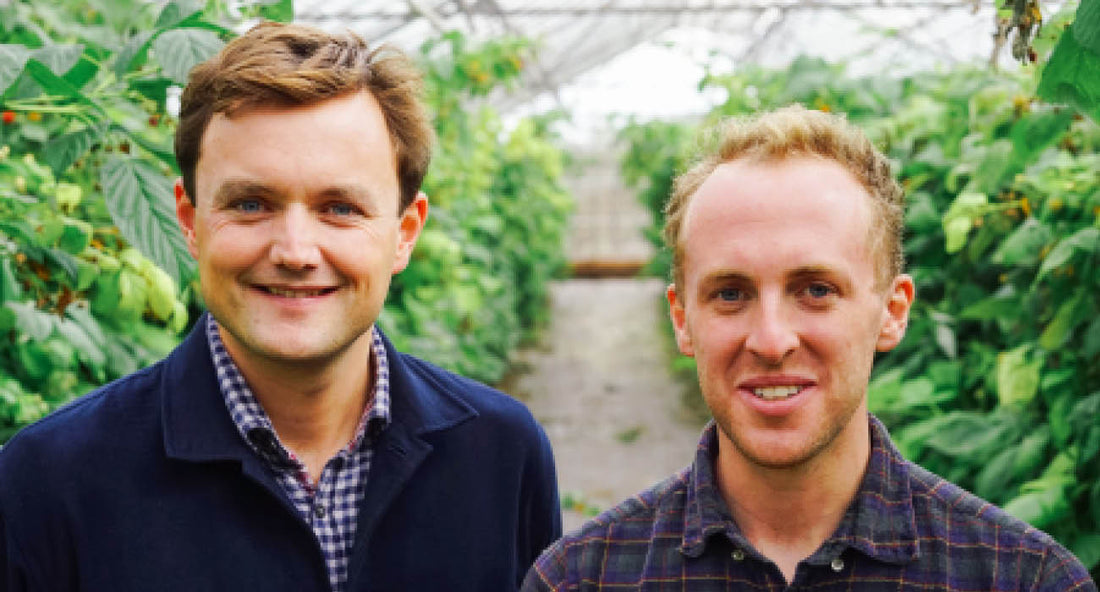
How to reduce food waste
Food waste is a growing problem around the world and is one of the biggest contributors to global warming.
According to the Waste and Resources Action Programme (WRAP), UK households waste 4.5 tonnes of food every year, while 25-30% of global food is lost or wasted. By making a few simple adjustments to our shopping and eating habits, we can massively reduce food waste and minimise our carbon footprint as a result.
Before we go into the ways in which you can reduce food waste, let’s start by outlining what food waste actually is and why it’s a problem.
What is food waste?
Food waste refers to food that’s discarded, lost or uneaten at any stage of the supply chain, from production right through to consumption.
This includes food that doesn’t pass grading requirements, such as wonky fruits and vegetables, as well as any food that’s thrown away at home.
Why is food waste bad for the environment?
Food waste ends up in landfills and decomposes, it then releases methane, a powerful greenhouse gas that is 25 times more harmful to the earth’s atmosphere than carbon dioxide. The production of food also causes wasted resources, as it uses a significant amount of water and therefore relies heavily on burning fossil fuels.

How to reduce food waste
Cutting food waste is one of the best things we can do to combat climate change because just a few household changes can have a big impact. Here are 10 ways you can reduce food waste…
1. Plan your meals
Before you shop for groceries, plan what you’re going to have for each meal that week. Writing a shopping list will help make sure you only buy what you eat, plus it’ll help you incorporate any leftover ingredients into other meals.
2. Organise your fridge
Keeping your fridge organised can help you reduce food waste because it’ll help you see everything you have. You’ll no longer find hidden food that’s expired because you completely forgot it was there.
In fact, it’s a good idea to arrange your fridge by expiry date so you know exactly what you need to use first.

3. Start Composting
If you do need to throw away food, using a compost bin to do so is a lot more environmentally friendly than adding to landfills.
Rotting food in landfill produces methane because it’s squashed and compressed without oxygen, whereas composted food is able to decompose with oxygen. This sustainably decomposed food can then be used in gardening.
4. Understand expiry dates
‘Use by’ and ‘expiration’ dates state when the products need to be consumed by, as they refer to the safety of the food.
However, ‘best before’ and ‘sell by’ dates refer to the food’s taste and quality. Consuming products after this date can help you reduce food waste. But just make sure you don’t consume after ‘use by’ or expiration dates!
5. Store food correctly
It’s best to check the best way to store each of the foods you buy, as some stay fresher for longer outside the fridge and vice versa. It might surprise you to learn that foods like bananas, potatoes and citrus fruits keep better in cool, dark cupboards rather than fridges.

6. Log the foods you do waste
When you do throw away food, make a note of what it is. If you start to see a pattern, you might want to cut down on how much of it you buy.
7. Support Food Waste Charities
Food waste charities such as the Felix Project help combat food waste by collecting fresh food that cannot be sold and delivering it to charities and schools that use it to feed those in need of healthy meals.
Donating or volunteering for the Felix Project doesn’t just reduce food waste, it’s also a way of helping tackle food poverty. Find out how Dash Water are helping combat hunger in the UK by supporting the Felix Project.
8. Get creative with leftovers
There are lots of savvy recipes available online that can help you revive leftovers and reduce food waste.

Stock is a great way to use up leftover vegetable cuttings - simply add to a pan and boil. Breadcrumbs on the other hand can help you use up stale bread - mix with herbs and use to coat fish or meat. Or if you have wilted or overly ripe fruit and veg, try blending it into a soup or smoothie.
9. Freeze, freeze, freeze
Try getting into the habit of freezing any leftover food instead of throwing it away, so that you can eat it at a later date. It’s not just cooked food you can freeze, you can also freeze cold ingredients such as milk, cheese, bananas and butter.
10. Shop waste-conscious brands
As the need to protect the environment grows, more and more brands are doing their bit to tackle waste. Here at Dash, for example, all of our infused sparkling water is made using wonky fruit that others say no to. By shopping with sustainable brands like us, you can help fight food waste at an earlier stage of the supply chain.
Find out more about Dash Water and how we aim to be an ethical drinks brand by using wonky fruit, sustainable packaging and business as a force for good.


